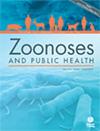Understanding the Effect of a Changing Climate on the Re-Emergence of Mosquito-Borne Diseases in Vulnerable Small Island Nations: A Systematic Review
Abstract
Introduction
Drastic changes in meteorological variables due to climate change will likely have an implication on the proliferation of vectors such as mosquitoes. Extreme weather events may therefore promote the emergence/re-emergence of mosquito-borne diseases (MBDs) and potentiate the risk of endemicity, particularly, in small island nations.
Method
A systematic review was chosen to methodically ascertain the knowledge gaps that exist in determining the influence of the changing climate on MBDs in small islands with vulnerable public health systems. This review was conducted using the PRISMA guidelines.
Results
Following extraction of 600 articles from the databases, 16 studies were determined to meet the selection criteria. The majority of these research papers were from Sri Lanka (n = 9) while the remaining articles were distributed between islands in the Pacific and Atlantic Ocean. Several of these studies used regression modelling techniques to discuss the effect of multiple meteorological variables on the incidence of MBDs. A positive relationship was observed between temperature and the relative risk of MBDs in 72% of the papers. Rainfall enhanced dengue transmission in 84% of the studies included. All the articles discussing the effect of humidity illustrated a similar trend while wind speed was the only climatic variable demonstrating a negative relationship with MBDs.
Discussion
Considering the intricate nature of the non-linear exposure–response link is crucial when estimating the lagged effect of the changing climate on MBDs transmission. Other challenges associated with bias and confounders in the selected studies as well as meteorological data accessibility, were highlighted. Therefore, it was not possible to conclusively establish that the changing climatic variables do influence the spread of MBDs which accentuated the need for conducting further studies to illustrate the effect of changing weather variables on the incidence of MBDs, with an emphasis on vulnerable small island nations.


 求助内容:
求助内容: 应助结果提醒方式:
应助结果提醒方式:


